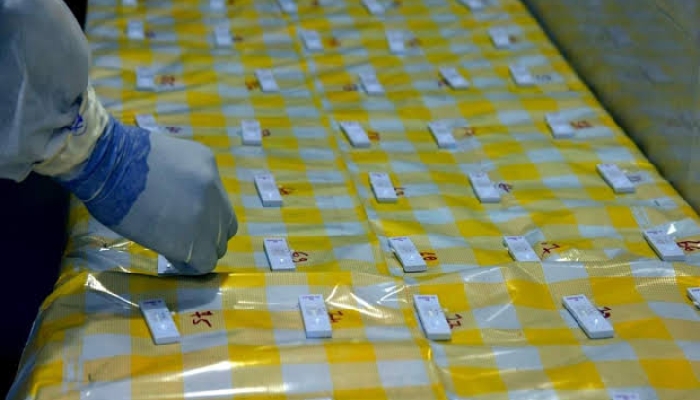Islamabad, Sept 20: Some influential Muslim nations have asked Pakistan to engage in backdoor diplomacy with India and requested Prime Minister Imran Khan to tone down his rhetoric against his Indian counterpart to de-escalate tensions between the two nations over Kashmir, according to a media report on Monday.
When Saudi Deputy Foreign Minister Adel Al-Jubeir and UAE Foreign Minister Abdullah bin Al-Nahyan travelled together to Islamabad on September 3, they came with a "message" on behalf of their leadership as well as some other powerful countries, The Express Tribune reported.
They asked Pakistan to engage in backchannel diplomacy with India.
They met Prime Minister Khan, Foreign Minister Shah Mehmood Qureshi and Chief of Army Staff General Qamar Javed Bajwa during their day-long trip.
"The discussions were so confidential that only top officials of the foreign ministry were allowed to sit in those meetings," an official told The Express Tribune requesting anonymity.
According to the official, both Saudi and UAE diplomats conveyed their willingness to play a role in defusing tensions between Pakistan and India, the report said.
One of the proposals on the table was to encourage both countries to hold backdoor talks with each other.
While the international interlocutors were willing to persuade India to ease some of the restrictions imposed in Kashmir, they requested Pakistan to stop targeting Prime Minister Narendra Modi.
Prime Minister Khan was requested to tone down his verbal attacks against his Indian counterpart Modi, the report said.
However, Pakistan has turned down the requests and made it clear that it would only engage with India through quiet or conventional diplomacy after New Delhi was persuaded to meet certain conditions, officials privy to the development told the paper.
"These conditions include lifting of the curfew and other restrictions imposed in Kashmir,” the paper reported.
Tensions between India and Pakistan spiked after New Delhi abrogated provisions of Article 370 of the Constitution to withdraw Jammu and Kashmir's special status and bifurcated it into two Union Territories.
Pakistan downgraded its diplomatic relations with India and expelled the Indian high commissioner following the revocation of Article 370 in Jammu and Kashmir on August 5.
Asserting that abrogation of Article 370 was its internal matter, India has strongly criticised Pakistan for making "irresponsible statements" and provocative anti-India rhetoric over issues internal to it.
Since August 5, Khan has repeatedly targeted Modi, questioning his links with Hindu extremist organisations.
Foreign Office spokesperson Muhammad Faisal, at his last weekly briefing, had also said there was no backdoor diplomacy underway with India to normalise the situation.
The Kashmir issue is expected to figure prominently during Khan's two-day trip to Saudi Arabia that will start from September 19.
Saudi Crown Prince Muhammad Bin Salman has spoken with Khan at least four times since August 5.
Given the Saudi crown prince’s close ties with both Imran and Modi, he is likely to offer his "good offices" to reduce tensions between the two neighbours, the report said.






Comments
Add new comment